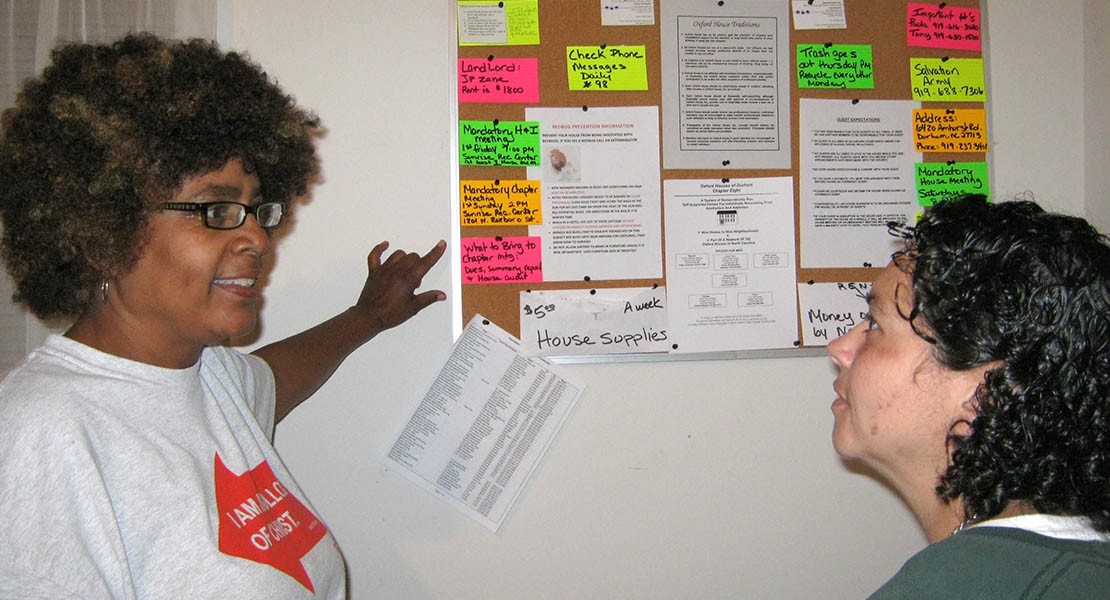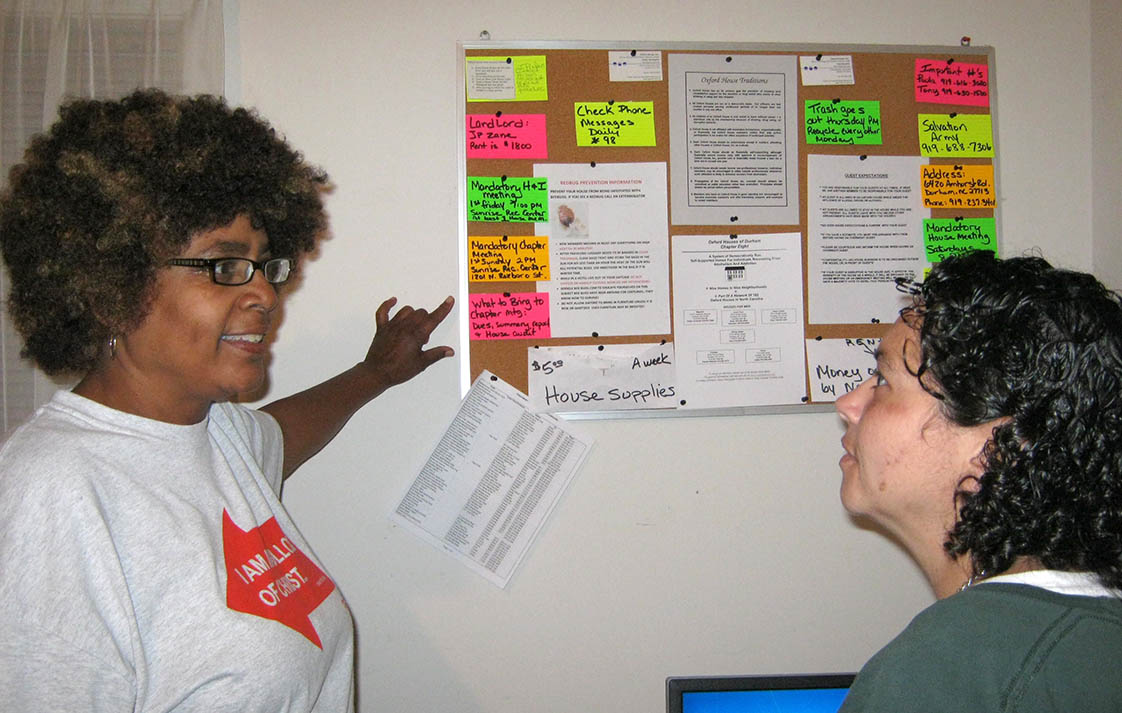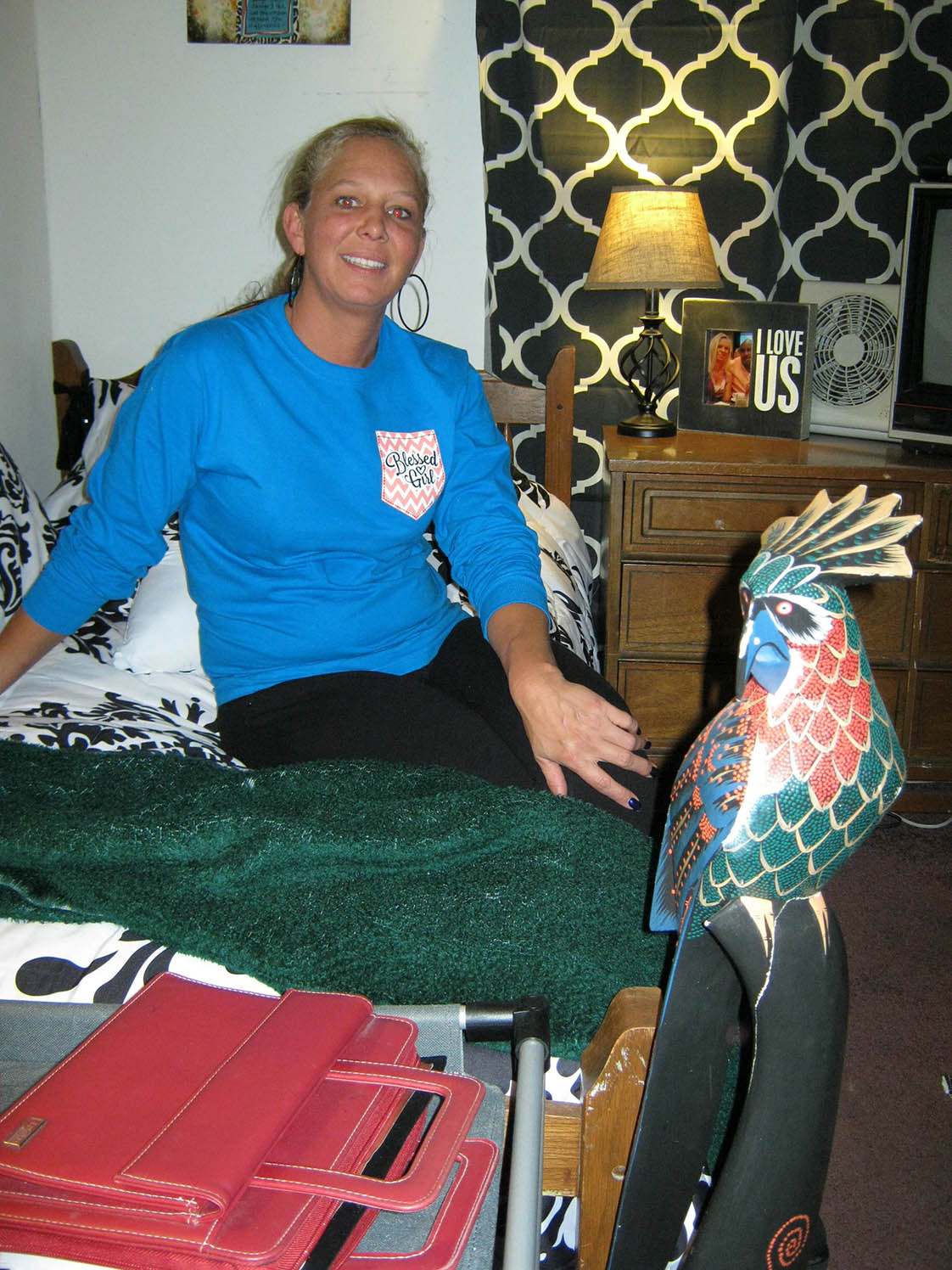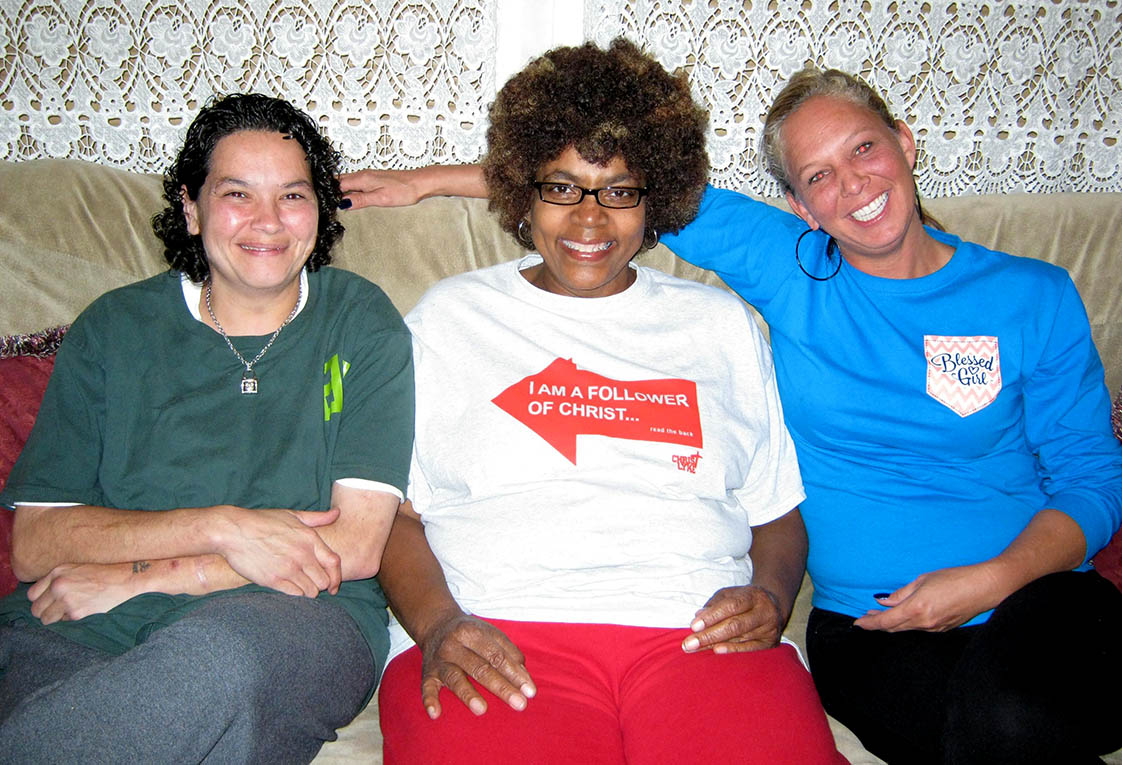

The Amhurst Oxford House has a memo board in the living room where residents can find information such as meeting dates, important phone numbers, and information about the house. Oxford House residents Debra Edwards (left) and Jamie Anstead (right) look over the information here.
After being hit by a series of life events – including a divorce and the deaths of a few loved ones – that drove Durham resident Dawn Sims to start drinking again after nine years of sobriety, Sims knew she needed a new strategy for getting clean and staying sober.

Oxford House resident Dawn Sims in her room at the Amhurst Oxford House in Durham. Sims has decorated the room in picture frames and a wooden bird given to her by her sister.
Sims said that was when her counselor told her about Oxford House – a system of self-run, self-supported addiction recovery houses worldwide.
“I had really nowhere else to go,” Sims said. “I lost the house, the husband, the car — all of that.”
“(Oxford House) has given me an opportunity to start over… It’s like a family.”
Tony Sowards, an outreach worker for Oxford House, said Oxford House Inc. is the umbrella organization for the more than 1,750 individual Oxford Houses worldwide. Twelve of those houses are in Durham – 10 houses for men and two houses for women and children.
Karen McKinnon, who is also an Oxford House outreach worker, said each facility houses between eight and 10 individuals who are all in recovery.
McKinnon said that individuals who stay in an Oxford House for at least one year increase their chances of achieving long-term sobriety by 80 percent.
She said Oxford Houses are so successful because the residents hold each other accountable for their actions.
“It’s not like a regular halfway house,” McKinnon said. “There’s no one person who runs it. It’s one person, one vote.”
McKinnon said all members of the house share responsibilities such as paying rent and doing house chores. Each housemate also attends a weekly house business meeting and may hold a position such as treasurer or safety officer.
“We are all holding each other accountable,” said McKinnon, who lived in an Oxford House herself for three years. “So when we see somebody there that is doing something that is suspect – like using (drugs or alcohol) – that person has exactly 10-15 minutes to get out. And although we may care about them and love them, they’re putting our sobriety at risk and they have to go.”
Angela Baker, a two-year resident of a Durham Oxford House on Amhurst Road, said the organization has been essential in her recovery.
“When I walked through the door, I was home,” Baker said. “It’s everything I have prayed for, it’s really given me a chance to mature.
“If anybody is looking to change their life, then you have to learn how to live in that change. And that’s what Oxford House provides.”
Sowards said part of his job as an outreach worker includes going to drug and alcohol treatment centers and giving people information about Oxford Houses.
He said the residents interview potential new members and then vote on whether or not the individual would be a good fit for the house.
“There is a spiritual essence that is the driving force for every man and every woman in the model,” Sowards said. “Whether they achieve that awareness — that’s where we have the conflicts and that’s where the democratic process tries to help the model survive.”
Sims said Oxford House has provided her not only with a home, but with a family as well.
“The girls are like family to me,” Sims said. “I’ve been through a lot of ups and downs — health issues, break ups, lost jobs, you know. So we get the Netflix and the ice cream out. They’re like family to me.”

Jamie Anstead, Debra Edwards and Dawn Sims (from left to right) are all living in the Amhurst Oxford House in Durham. Currently, six women and four young children live in the house where Sims said all of the women help each other out with chores and watching the children.
One thought on “Self-run recovery houses help community overcome addiction”
Comments are closed.